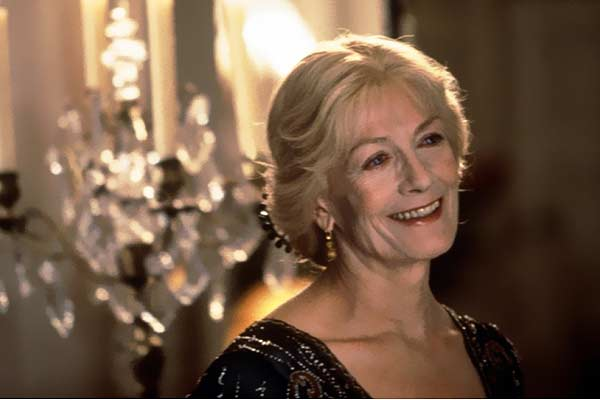
Friday
My wife Julia alerted me to a luminescent Atlantic article about women disappearing as they grow older. Although some regard this as a problem, author Akiko Busch draws on Virginia Woolf’s Mrs. Dalloway to show how women can turn it to their advantage.
First, the apparent problem. When women are treated as objects, they become less noticed as they age:
The invisible woman might be the actor no longer offered roles after her 40th birthday, the 50-year-old woman who can’t land a job interview, or the widow who finds her dinner invitations declining with the absence of her husband. She is the woman who finds that she is no longer the object of the male gaze—youth faded, childbearing years behind her, social value diminished. Referring to her anticipated disappearance on her upcoming 50th birthday, the writer Ayelet Waldman said to an interviewer, “I have a big personality, and I have a certain level of professional competence, and I’m used to being taken seriously professionally. And suddenly, it’s like I just vanished from the room. And I have to yell so much louder to be seen. … I just want to walk down the street and have someone notice that I exist.”
Busch points out how middle-aged Clarissa Dalloway notes the transitory nature of her identity as she shops for flowers in London:
Mrs. Dalloway, considering her place among the people she knows, finds that “often now this body she wore (she stopped to look at a Dutch picture), this body, with all its capacities, seemed nothing—nothing at all. She had the oddest sense of being herself invisible, unseen; unknown.” She recalls that she is known now simply by her husband’s name, and a few sentences later, she considers how sometimes it is simply by their gloves and shoes that women are identified. She knows nothing, she thinks, no language, no history, and hardly reads books except memoirs. She realizes then that “her only gift was knowing people almost by instinct.”
Busch argues, however, that one disappears only if one surrenders to objectification. If, on the other hand, one sees oneself as a subject, one forges deeper connections with others than would otherwise be possible. That’s the significance of Mrs. Dalloway’s gift:
Clarissa Dalloway is clearly a subject. She realizes that her body is simply something that she wears, and then, a sentence later, finds that it is really nothing, nothing at all. Woolf suggests a correlation between invisibility and the ability to know people by instinct when she identifies both these qualities in Clarissa within a single paragraph.
Recent studies confirm Mrs. Dalloway’s observations, Busch says:
A reduced sense of visibility does not necessarily constrain experience. Associated with greater empathy and compassion, invisibility directs us toward a more humanitarian view of the larger world. This diminished status can, in fact, sustain and inform—rather than limit—our lives. Going unrecognized can, paradoxically, help us recognize our place in the larger scheme of things.
Although Busch doesn’t draw a contrast between male and female views of the matter, I found myself thinking of an Ursula K. Le Guin story that does so after covering similar terrain. In “Sur,” Le Guin imagines that the South Pole was actually first reached by women explorers. Upon arriving there, they become aware of their insignificance:
On the twenty-second of December, 1909, we reached the South Pole. The weather was, as always, very cruel. Nothing of any kind marked the dreary whiteness.We discussed leaving some kind of mark or monument, a snow cairn, a tent pole and flag; but there seemed no particular reasons to do so. Anything we could do, anything we were, was insignficant, in that awful place.
The Roald Amundsen party left a flag when they reached the pole in 1911, but in the mind of Le Guin’s narrator, this feeds a particularly male illusion that one can conquer or attain dominance over nature.
Her explorers, because of their heightened sensitivity, have another motivation for not leaving a marker, as the narrator explains:
But I was glad even then that we had left no sign there, for some man longing to be first might come some day, and find it, and know then what a fool he had been, and break his heart.
Because it means so much to men to have this illusion, the women explorers will not deny it them. They, however, have achieved a higher perspective of the world, one we could call Buddhist because of the way they move beyond self. Busch articulates it in her conclusion:
If humans do leave a mark, it is just some quick and temporary elusive imprint, nothing more than a fugitive logo or insignia.
Since that’s the reality, follow Mrs. Dalloway’s example and use the time you have to make richer the lives of those you come into contact with.
Further thought: Busch’s insight should not allow us to forget the work done by those who do not get the publicity. Le Guin’s short story maintains the balance well between those contributions and the illusory achievements of those obsessed with fame. Here’s another passage which gets at the balance:
But then, the backside of heroism is often rather sad; women and servants know that. But achievement is smaller than men think. What is large is the sky, the earth, the sea, the soul.
Le Guin’s story concludes with real achievement: a network of family relationships. She serenely accepts what some would regard as life’s absurdity:
We are old women now, with old husbands, and grown children, and grandchildren who might some day like to read about the Expedition. Even if they are rather ashamed of having such a crazy grandmother, they may enjoy sharing in the secret. But they must not let Mr. Amundsen know! He would be terribly embarrassed and disappointed. There is no need for him or anyone else outside the family to know. We left no footprints, even.

